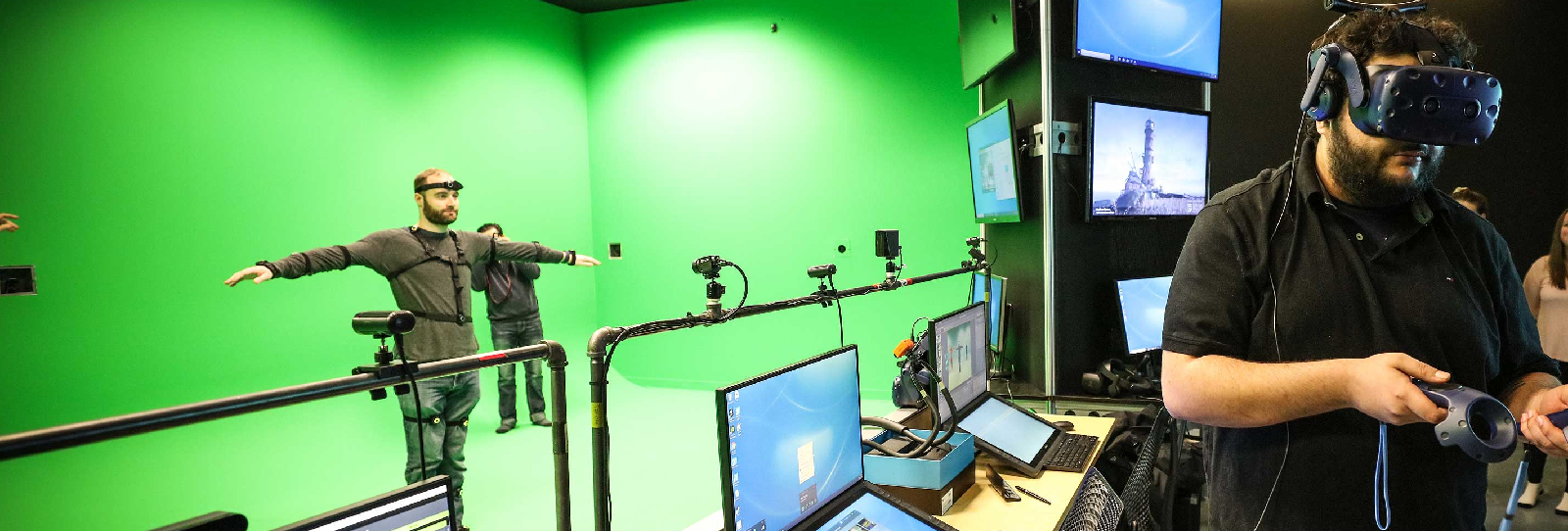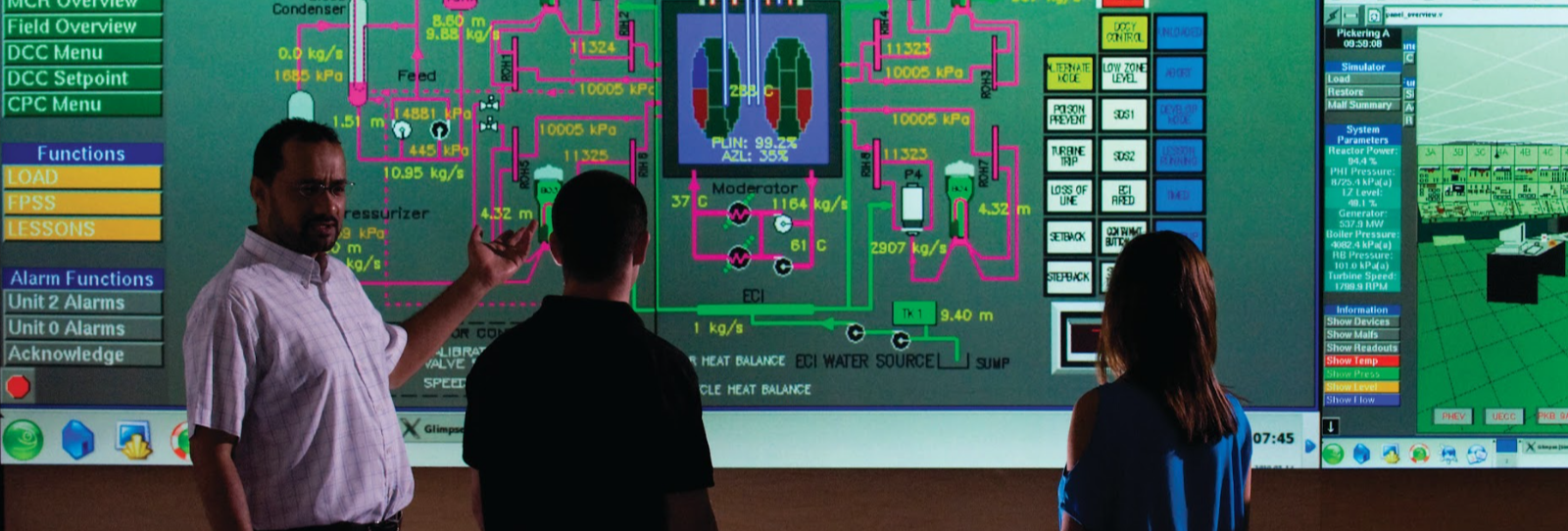Oshawa Economic Development Strategy (O.E.D.S.)
The City of Oshawa is pleased to announce the launch of its new Economic Development Strategy that aims to drive job growth and further investment in the city. The Strategy focuses on enhanced trade, diversification and quality of life, and positions Oshawa for future economies, opportunities and overall growth.
The Strategy builds on the city’s unique competitive strengths, such as proximity to major metropolitan centres, a robust labour force, emerging talent and key infrastructure assets such as air, sea, rail and highways, and aims to strengthen existing economic sectors in advanced manufacturing, modern technology and science driven businesses and services.
Key Economic Sectors
Through the new Economic Development Strategy, five new emerging sectors were identified in high-growth fields which complement the existing traditional major sectors. To learn more about local programs and organizations actively working within these areas, please explore the Emerging Growth Sectors section below.
In addition to the newly established emerging sectors, the City of Oshawa remains committed to support and grow the business ecosystem through our traditional major sectors:
Emerging Growth Sectors Assets
| A.I. Hub (Durham College) |
| The Durham College Hub for Applied Research in Artificial Intelligence for Business Solutions (The A.I. Hub) offers industry partners access to technical expertise, state-of-the-art facilities and platforms, and student talent, so that businesses can uncover insights while providing intelligent and autonomous solutions that increase productivity and growth. The AI/Hub engages with existing businesses and start-up ventures utilizing advanced A.I. techniques and solutions to address practical business problems. |
| Applied Artificial Intelligence (Trent University Durham G.T.A.) |
| Exclusive to the Advanced Learning Centre in Downtown Oshawa, Trent University’s professional certificate in Artificial Intelligence includes the fundamental concepts of A.I., basic computer programming, algorithms of machine learning, statistics, information systems, and the history, ethics, social, and political implications of A.I. |
| Security, Artificial Intelligence, and Networks Lab (Ontario Tech University) |
|
Founded by a group of Ontario Tech University professors - Julie Thorpe, PhD, Ying Zhu, PhD and Amirali Abari, PhD - the Security, Artificial Intelligence, and Networks Lab (S.A.I.N. Lab) was created in 2017. The S.A.I.N. Lab performs applied, multidisciplinary, and innovative research on networks, computer systems, data, and intelligent decision systems. Our research touches many vibrant and exciting disciplines such as information security, privacy, artificial intelligence, application networks, and human computer interaction. Our motto is simple: “Do sane research at S.A.I.N.”, where sane research is defined as impactful research that enhances the daily lives of people, nations, and organizations, as well as being the foundation of other impactful research and development. Lab members have access to high-performance GPU servers, high-performance traditional servers, and web servers. Members also have access to the Human-Centred Computing Lab for running studies with human subjects. Research areas include:
|
| EON Reality iCube (CAVE) |
| Ontario Tech University recently acquired an EON Reality iCube, a reconfigurable three-sided immersive environment with six-degrees-of-freedom tracking, stereoscopic 3D capabilities and various input devices. Within the EON Reality iCube, participants become completely immersed through appropriate imagery and sound, which allows for innovative and highly immersive games and virtual worlds to be created. |
| Gaming and Virtual Reality Laboratory (Ontario Tech University) |
The Gaming and Virtual Reality Laboratory is dedicated to the study and development of games and game technology. The lab includes:
|
| Longan Vision (Spark Centre) |
| Longan Vision focuses on developing smart products to improve efficiencies for first responders. They provide engineering products to face extreme challenges. They are building an ecosystem of linked products to enhance communication and efficiency. The Fusion Vision System (F.V.S.) is a helmet mounted Augmented Reality device that can be attached to a firefighter's helmet. |
| M.R.C. Studio (Durham College) |
| The Durham College Mixed Reality Capture Studio (M.R.C. Studio) offers organizations access to technical expertise, a state-of-the- art motion capture stage with virtual reality tracking equipment and green screen space, so that businesses can develop experiential applications, which integrate motion capture, virtual reality, augmented reality, and virtual production. Working together in the MRC Studio, solutions can be created that increase organizational productivity and growth. |
| Advanced Networking Technology and Security Research Lab (Ontario Tech University) |
|
The Advanced Networking Technology and Security (A.N.T.S.) research lab at Ontario Tech University is home to state-of-the-art research and development of technologies for next-generation networks and critical infrastructures. It includes a security testing facility funded by the Canada Foundation for Innovation, a private research cloud environment and a software-defined networking testbed. |
| Centre for Cybersecurity Innovation (Durham College) |
| The Durham College Centre for Cybersecurity Innovation offers current and aspiring cybersecurity professionals, as well as public and private-sector organizations, access to applied research services and leading-edge education in cybersecurity to prepare for the everchanging and complex threat landscape. |
| Hacker Research Laboratory (Ontario Tech University) |
This cloud-based, networked and isolated lab houses various networking devices such as servers, firewalls, intrusion prevention/detection systems, and routers. Students use the lab to gain a good understanding of many security concepts, including:
In this facility, students gain hands-on training in IT security from two perspectives: an IT security officer and a criminally motivated hacker. |
| Durham College eSports Gaming Arena |
| With the opening of its eSports Gaming Arena in Oshawa, Durham College is taking a leading role in one of the fastest-growing industries in the gaming market. The 278 sq.m. (2,992 sq. ft.) venue is unique from any other collegiate gaming space in Canada thanks to its extensive broadcast capabilities and lounge area that can hold up to 120 spectators for eSports tournaments. Its industry-grade design is providing students with vital hands-on experience to prepare them for career success in the global eSports market, which is exceeding $1.6 billion per year. |
| Ontario Tech Student Union eSports |
| Initially starting as a campus club, the Ontario Tech Student Union (O.T.S.U.) helped facilitate the fast-growing student demand into a new physical eSports Gaming Arena and thriving community of 1,500+ casual and elite student gamers, who rank among the best in their field in North America. |
| Automotive Centre of Excellence (Ontario Tech University) |
| A.C.E. is a world-class research and development facility and has experienced engineers and technicians to deliver solutions to any product development or testing problem. Their environment can re-create any weather conditions a test object will experience anywhere in the world, from the blistering heat in Death Valley to the frigid conditions in the Arctic. They can test vehicles operating under full load with crosswinds and wind speeds up to 280 km per hour. |
| C.T.C. McLaughlin Advanced Technology Track |
| As part of a $170 million investment, engineers at Oshawa’s Canadian Technical Centre (C.T.C.) are putting their “code-to-the-road” on the newly completed C.T.C. McLaughlin Advanced Technology Track (C.T.C. M.A.T.T.). Featuring an oval-shaped design for continuous driving and four lanes with speeds ranging from 60–100 km/ hour, the C.T.C. M.A.T.T. will support the testing of advanced General Motors vehicle software and technologies that will enable a future vision that is self-driven, all-electric and highly connected. |
| G.M. Canadian Technical Centre |
| The General Motors Canadian Technical Centre (C.T.C.) is at the forefront of the future of mobility. They are a diverse team of agile and innovative thought leaders who are passionate about developing key technologies and products that will help achieve GM's vision of a world with zero crashes, zero emissions, and zero congestion. They are a leader in automotive software development, testing and engineering in Canada. C.T.C. helps drive the development of GM's infotainment apps and services, autonomous driving technologies and electric vehicles using state-of-the-art labs, test tracks, simulation, and A.I./Machine Learning. |
| Project Arrow |
| Ontario Tech University’s Automotive Centre of Excellence (A.C.E.) was home to a top-secret and visionary national engineering project. Known as Project Arrow, the mission was to build Canada’s first zero-emission concept electric vehicle. Project Arrow progressed from initial supplier meetings all the way to part design, fabrication, and full build on-site in the A.C.E. climactic wind tunnel at Ontario Tech University. Whereas today’s cars are typically built on assembly lines, every design and fabrication detail of the Arrow, from the decision on type and placement for every bolt, to the full installation and build, was completed on campus by a team of experts and future talent from the University’s engineering programs. |






